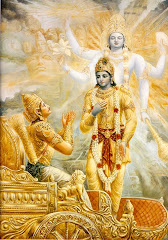Secret of the Scribe is Douglas Misquita's
second offering, after the very well received Haunted. However, unlike many authors
who prefer to play it safe and come out with a sequel (to a successful book) ... Douglas has chosen to go with a completely different plot and storyline, and
has drawn inspiration from Egypt instead.
Haunted was a fast paced action-thriller guaranteed
to give an adrenaline rush. We traveled along with FBI Special Agent Kirk
Ingram, the slightly larger than life protagonist/hero, through his trials and
tribulations - his highs and lows, his success and setbacks, his smiles and
tears - in his quest to destroy organized crime in all forms. Ingram was
seeking redemption, and waging a personal battle against the demons of his past
... and yours truly had promptly put a face to his character - in her mind,
that is. It was the face of the dashing and debonair Gregory Peck. But despite
her unshakable loyalties, she was generous enough to advise other readers to
consider Robert Redford or Paul Newman too :)
Then in Jan., Douglas unveiled his next – Secret of the
Scribe – and from the looks of it: cover art, etc., it appeared to be quite
intriguing ... and I let him know that. But when he came back saying he was quite
excited about this book and that he would send me a copy for review – I was
more than glad. The Pharaohs have fascinated me no end and here was my chance
to read an author-signed copy of a novel set in the land of the Pharaohs!
I have done a bit of reading on
the Egyptian civilization and have been intrigued by the Mitanni king Tushratta
and the New Kingdom pharaoh Akhenaten (Ikhnaton).
The Sun
King Akhenaten of Egypt (ruled 1352-1336 BC according to the mainstream view)
was a son-in-law of Tushratta, the Mitanni king of North Syria, through queen
Kiya (short for Khipa, from the Sanskrit ksipa, night)
The
name Tushratta is spelled Tuisrata in the Hittite cuneiform script,
which does not distinguish between "d" and "t" very well. Some have
suggested that the Sanskrit original is Dasaratha, a few others that it
is Tvesaratha (having splendid chariots), a name that is attested in the
Rigveda. Letters exchanged between Akhenaten and Tushratta has been found in
Amarna in Egypt and other evidence comes from the tombs of the period, which
have been discovered in excellent condition.
The Mitanni, who worshiped Vedic gods, were an Indic kingdom that had
bonds of marriage across several generations with the Egyptian 18th dynasty to
which Akhenaten belonged. The Egyptians knew the Mitanni as the Naharin
(N'h'ryn'), connected to the river (nahar) - most probably referring to the
Euphrates. But how could an Indic kingdom be so far from India, near Egypt? A
plausible scenario is that after catastrophic earthquakes dried up the
Sarasvati River around 1900 BC, many groups of Indic people started moving
West. This idea of westward movement of Indic people is preserved in the Vedic
and Puranic texts.
But let
me not digress.
Secret of the Scribe made my GK travel
even further – northward. I learnt about the Book of Thoth, the Huapa, various
symbols, pictographs, hieroglyphics, the Heretic's Tomb (depicting Egyptian
Gods leaving gifts to ancient civilizations), cave paintings depicting
contact and exchange of graces with supreme beings, Y'en Hak Se or
Protector of the Gods, Setna – son of the Pharaoh Rameses, Nefrekeptah, Horus,
Amen-Ra, Ptah, Ahura, Senet, Atsu, the Karnak Temple, the Great Marker, the Eye
of the Protector, ancient trapping systems and of course weaponry, and much
more.
In cramped corners of dimly lit caves, Dr. Ivonne Prideux
unravels ancient secrets with the help of the Huapa King that baffles her, and
along the twisting route of the hieroglyphics all those involved must face
their own insecurities and greed.
And there is a twin involved. But who or what it
is, I will not tell. And as for the mysterious cylinder, I won't play the
spoiler either. If you want to know, go ahead, get hold of the book and read
all you can.
Book Blurb: A cave-expedition to the remote borders of China and
Tibet unearth enigmatic discs that are believed to be of extraterrestrial
origin. But their discovery is quickly squashed and erased from official
records.
When venture capitalist Mark Steinberg launches
Linguistics, Inc. and unveils cutting-edge nanotechnology-based communication,
an enthralled human race is ready to proclaim the written and spoken word a
thing of the past.
But unknown to the world, Linguistics is setting the stage
for total control.
Leading the scattered resistance movement, Lance Michener
wants to shut down the Linguistics network before the damage is total and
irreversible.
At the center of the conflict is the hunt for the mythical
Book of Thoth — the Book of Wisdom of the Gods; a Book that contains the
secrets of the language of all earthly species and languages yet unknown.
And as Linguistics ushers in an era of global mind
control, the race is on to prevent The Book from falling into the wrong hands.
Haunted had FBI agents, terrorists and a deadly nerve
agent, while Secret of the Scribe is peopled with Egyptologists,
archaeologists, scientists and a technology that reads thoughts; however
tribes, ancient secrets, tour guides and even aliens make their presence felt.
And there is plenty of action – bloodshed, trap, betrayal, sacrifice,
tenderness and what have you. One is reminded of the Indiana Jones series, Dan
Brown's works and of course Gregory Peck – from Mackenna's Gold.
The cutting edge technology that Linguistics, Inc is
developing (in this novel) is not really fiction. A team of California
scientists (led by Philip Low, a 32-year-old neuroscientist) have developed the
world's first portable brain scanner, and it may soon be able to "read a
person's mind," playing a major role in facilitating medical
breakthroughs. The device, created by San Diego-based NeuroVigil (of which
Philip Low is the chief executive), and dubbed the iBrain, fits over a
person's head and measures unique neurological patterns connected to specific
thought processes.
Low says the goal is to eventually have a large enough
database of these brainwaves that a computer could essentially read a person's
thoughts out loud. One person who has already tried out the iBrain is
famed physicist Dr. Stephen Hawking.
"We'd like to find a way to bypass his body, pretty
much hack his brain," said Low. This past summer, Low traveled to
Cambridge, England, where he met with Hawking, who was asked to think
"very hard" about completing various tasks while wearing the device.
Now, will Lance Michener and his team (Lorraine Tao,
Ishaan Anurag, Ivonne Prideux, Elijah, Femi Hasina, Roleau, Albere, Lachlan,
Maso Djimouti) succeed in stopping the world from being mind controlled, from
becoming silent thought-reading robots with an army of nanobots inside their
cranium? Well you will have to read the book to find that out.
Do not expect to skim through the book and this is no
cursory read. It demands your full attention and is worth every bit of it. As
one reads along, it would be best to take the help of Prof. Google and having a
good look at the places, images and monuments mentioned in this book, 'coz then
one can visualize it better. And believe me, mere reading is not enough; you
will have to play out the scenes in your head, while your eyes do the reading:
simultaneously. [Here's a link from Douglas' website: http://www.douglasmisquita.com/html/insidesos.html#inspiration;
but do look up Google, that way you'll be able to appreciate the story better
and it's a visual delight too.]
Suggestions: The typos could and should have
been easily pruned out. And a little sharper editing would have helped. The
language is vivid but a bit of colour and soul would have been welcome – given
that the nature of the book may have compelled the author to choose the
impersonal 'telling' route over the more interesting dialogue or conversation
format – in large measure.
Douglas continues with his story within a story style that
is all very good since they all get neatly tied up in the end. However, I would
have wanted to know a bit more about Michener from age six to age thirty-five.
How his character building happened, how he decided on his life's purpose i.e.,
how certain events shaped his life and thinking. The enigmatic discs sort of
tantalized to deceive. Mark Steinberg and Ishaan Anurag are underdone. There is
definitely scope for some more content there. And how Timothy Sable came to be
the top man ... would have made for some interesting read. But thankfully Douglas
steers clear of an ill timed, ill developed and thoroughly clichéd love story
or an almost love story, that has sadly become de rigueur.
The book feels good to hold and the book jacket cover is
quite attractive, it instantly catches attention. However I feel that some of
the titles of the chapters (e.g., 'On The Run', 'Rescued', 'Betrayed',
‘Shutdown’ etc.) reveal too much and rob off the charm and suspense of the
following pages. It somewhat dilutes the interest, and in a thriller that is
simply not done.
My rating: 3.5/5. Informative and quite a riveting read that will
appeal to all age groups and not just to thriller-loving epicureans, so even if
you have several swashbucklers sitting on your 'to be read' list, don't miss
this one!
Douglas is well on his way to creating an
action-thriller oeuvre of his own and I look forward to reading more of his
works in the future.
Details of the book: Secret of the Scribe/ Author:
Douglas Misquita, Jr./ Publisher: Frog Books/ Publishing Date: Feb, 2012/ ISBN:
978-93-81836-10-1 / Pages: 332/ Price: Rs.245; US $10.
Photograph: The book jacket cover of Secret of the Scribe.
Picture courtesy: link.















I am yet to write my review :( liked reading your review!
ReplyDelete@ Reema: Thanks! :)
ReplyDeletePS: I’m unable to leave a comment on your blog though. It’s not accepting :(